With thousands of eye surgeries, doctors offer not just sight but build a bright bond between two nations
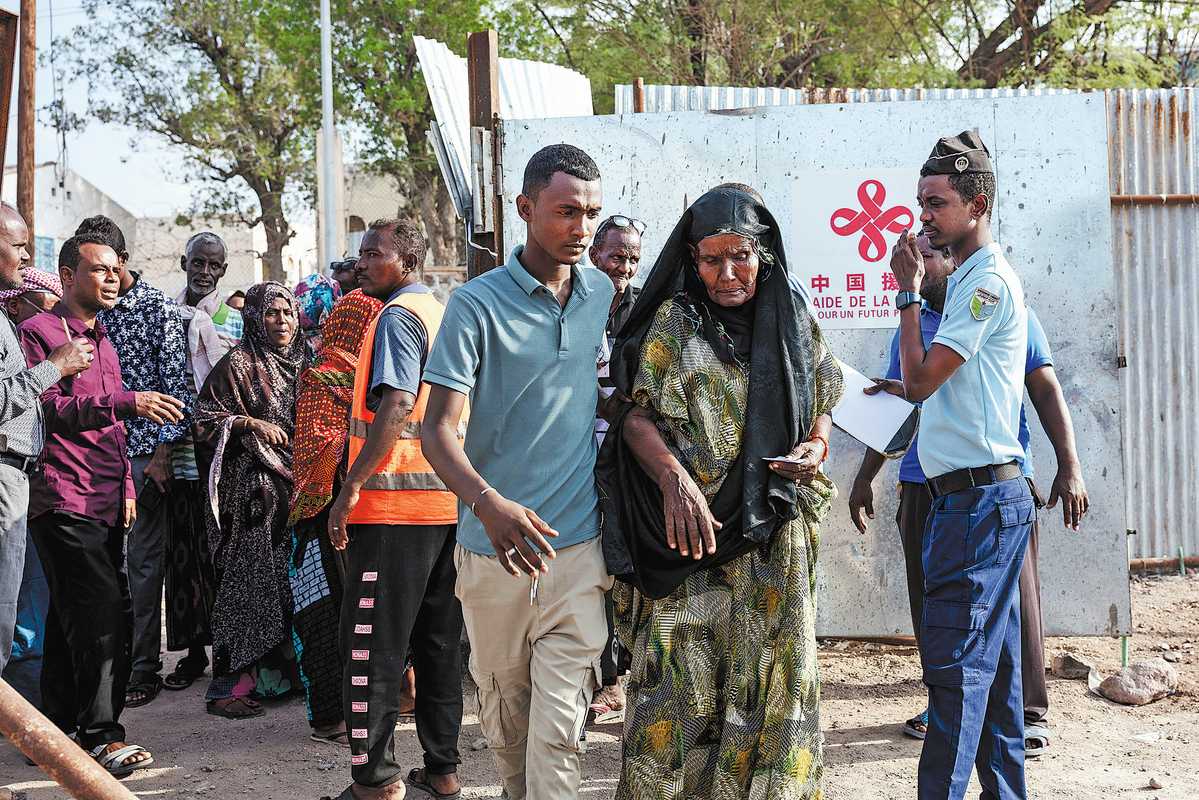
In February 2023, a pregnant woman accompanied her father to a hospital in Djibouti City in eastern Africa, where he was scheduled to undergo cataract surgery.
The very next day brought not just one miracle, but two. As her father removed his bandages and saw the world clearly again for the first time in years, she gave birth to healthy twin boys at the same hospital.
In gratitude toward the Chinese medical team, she named her sons Charmarke and Awale — after members of the foreign aid program who had helped restore her father's sight.
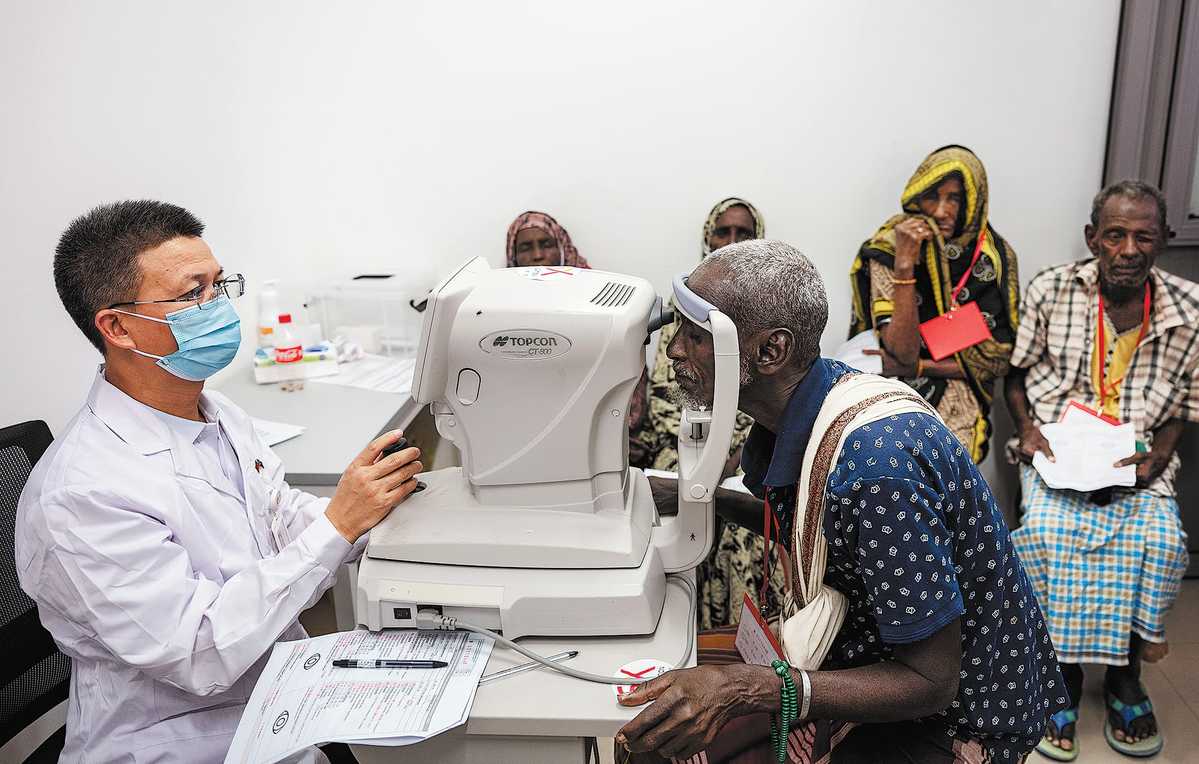
The story was told by Leung Chun-ying, vice-chairman of the National Committee of the Chinese People's Political Consultative Conference and former chief executive of Hong Kong, when attending a commemorative ceremony on June 6 in Taiyuan, the capital of North China's Shanxi province, to honor the medical team behind the cataract blindness elimination project in Djibouti.
Leung, also chairman of the Hong Kong-based GX Foundation, said the organization committed to providing medical and public health humanitarian aid to countries involved in the Belt and Road Initiative.
The African twins' grandfather was among the first patients to benefit from a cataract blindness elimination project launched in Djibouti, a joint effort by the Health Commission of Shanxi province and the GX Foundation.
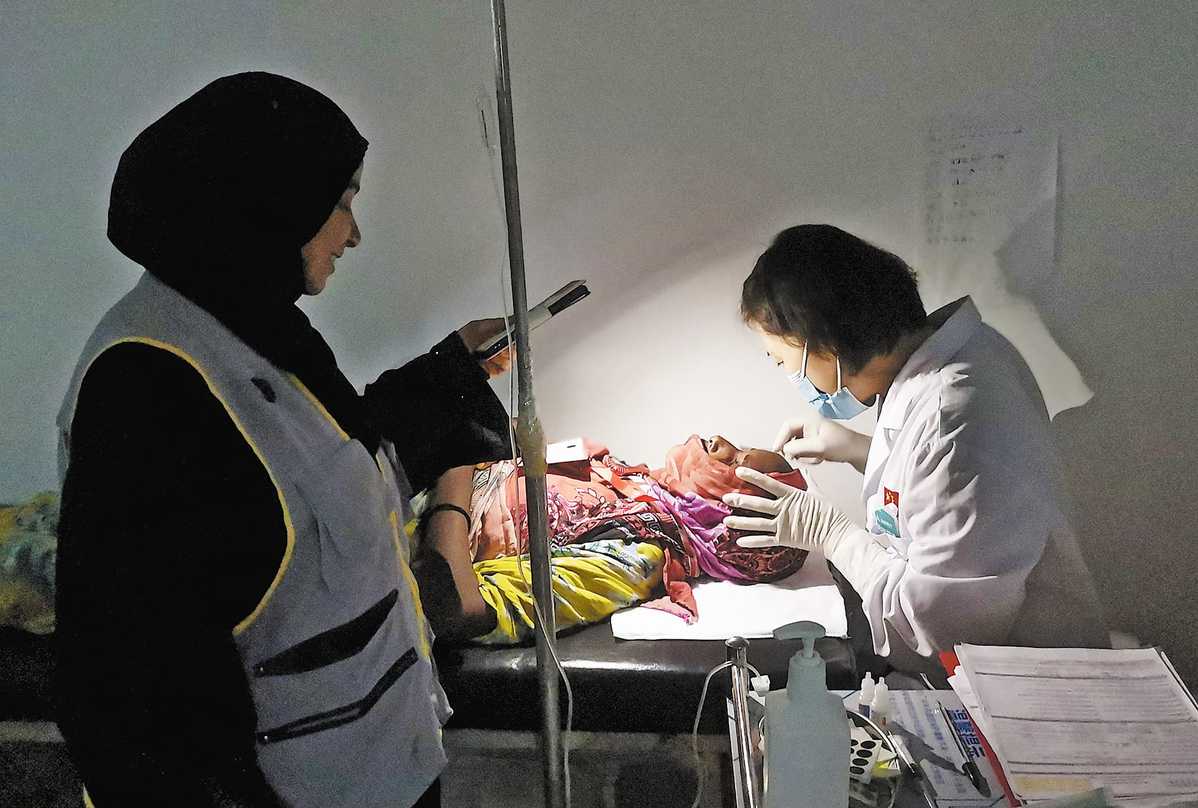
Leung said this story is a powerful testament to the deep bond between China and Africa as those names will carry that friendship forward over a lifetime.
Nestled in the Horn of Africa, Djibouti endures a harsh tropical climate with intense sunlight and strong UV radiation. Combined with limited access to healthcare and low living standards, these conditions have made cataract one of the leading causes of blindness in the country.
For many, the lack of qualified ophthalmologists meant living in darkness for years — until help finally arrived.
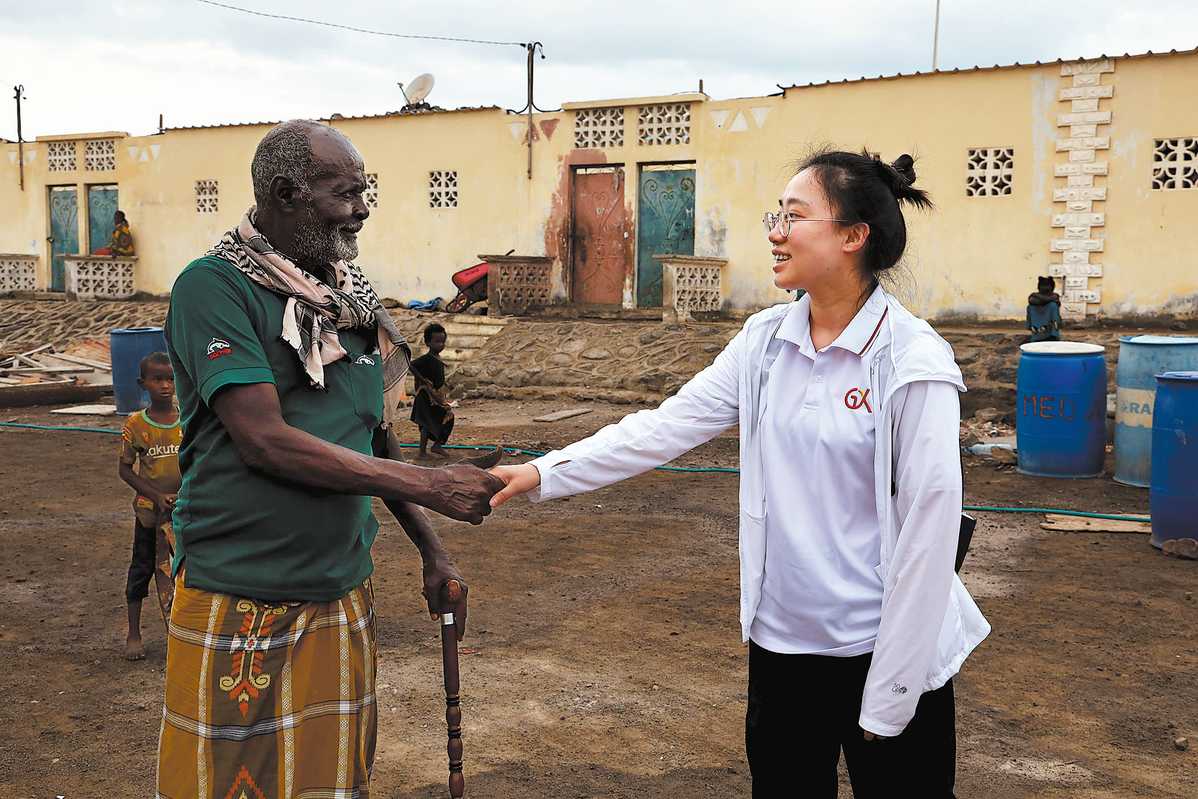
In 2021, GX Foundation and the Health Commission of Shanxi province signed a memorandum of cooperation to launch a cataract blindness elimination project in Djibouti. The goal was to provide 6,000 to 7,000 free cataract surgeries over the course of three to five years.
The project officially kicked off in February 2023. Since then, Shanxi has sent five medical teams — 39 doctors and nurses in total — to Djibouti City, the nation's capital, and Tadjourah, a coastal town roughly four hours away by car, to deliver much-needed medical aid.
Led by GX Foundation, the broader initiative spans five countries — Laos, Cambodia, Djibouti, Mauritania and Senegal — with Shanxi taking the lead in Djibouti.
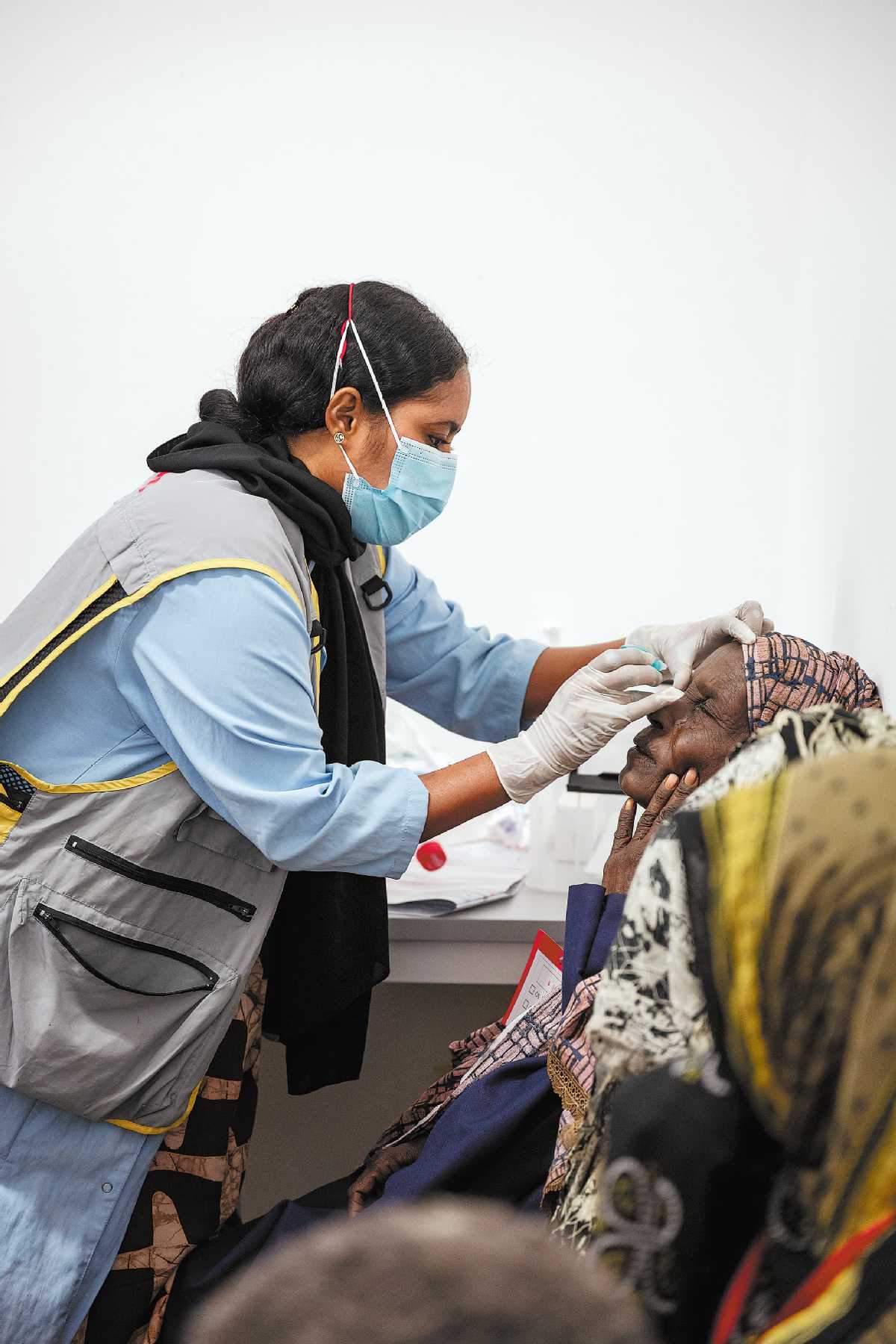
As of May, the total number of cataract surgeries performed across all five countries had reached 20,000. In Djibouti alone, the Shanxi medical team has conducted eye screenings for 7,741 people and successfully restored sight to 4,649 cases — all free of charge.
The Jincheng Eye Hospital in Jincheng, Shanxi, recently received a heartfelt letter of appreciation from officials in Tadjourah, Djibouti, commending the hospital's medical team for its exceptional service during the fifth Shanxi medical aid mission.
Between April and May, the hospital sent a team of eight medical professionals to Tadjourah, where they screened 1,035 patients and performed 601 free cataract surgeries, restoring sight to hundreds. In their spare time, the team members visited local schools to provide free eye health consultations and vision screenings for students — extending their care to the wider community.
"These surgeries did not just restore vision — they restored patients' dignity and independence," the governor of Tadjourah wrote, noting that the team's efforts had made a lasting impact on public health in the region.
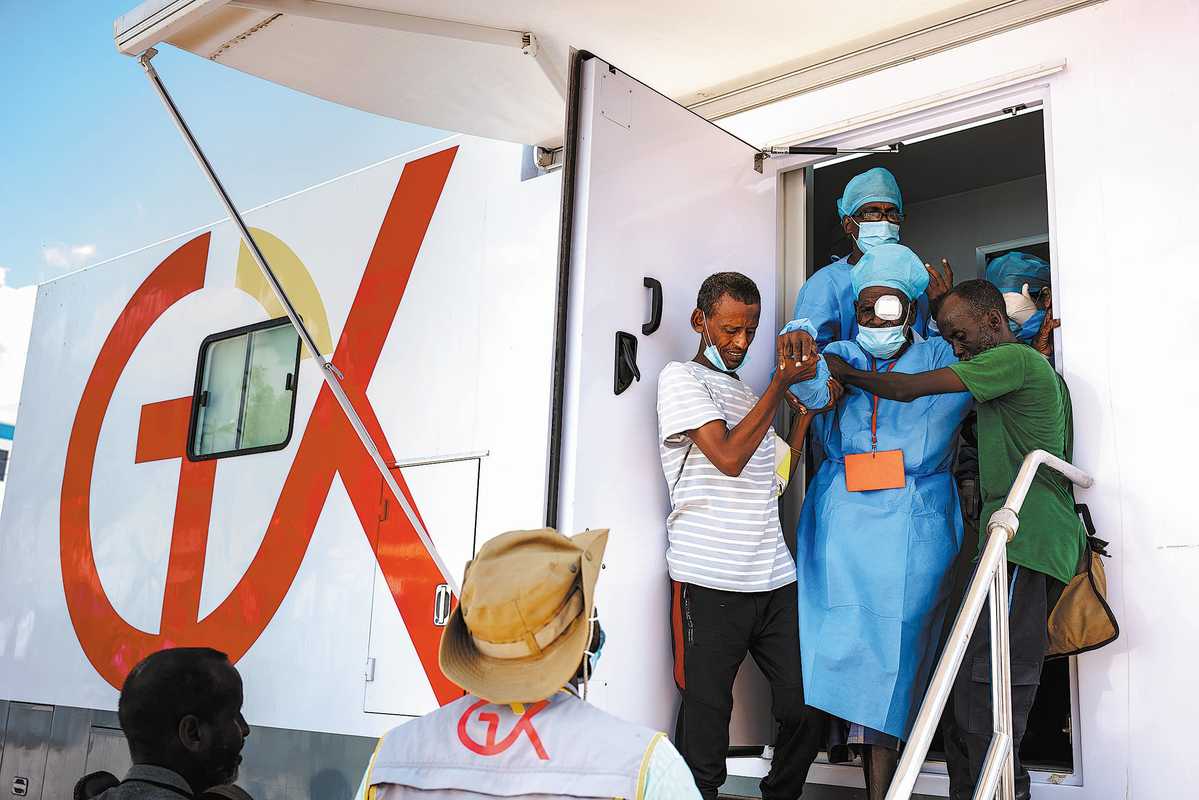
Bringing hope
During the commemorative ceremony, Leung presented medals to 39 team members who had taken part in the mission.
He praised the Shanxi team members for their perseverance and professionalism, noting that despite challenging conditions, they carried out life-changing cataract surgeries with outstanding skill and unwavering dedication — restoring sight and bringing renewed hope to the Djibouti people.
Liu Jiewei, leader of the second batch of Shanxi medical aid team to Djibouti and head of the cataract department at Shanxi Eye Hospital, expressed his gratitude upon receiving the commemorative medal. During his 50-day mission in Djibouti, Liu and his team performed more than 1,200 eye surgeries.
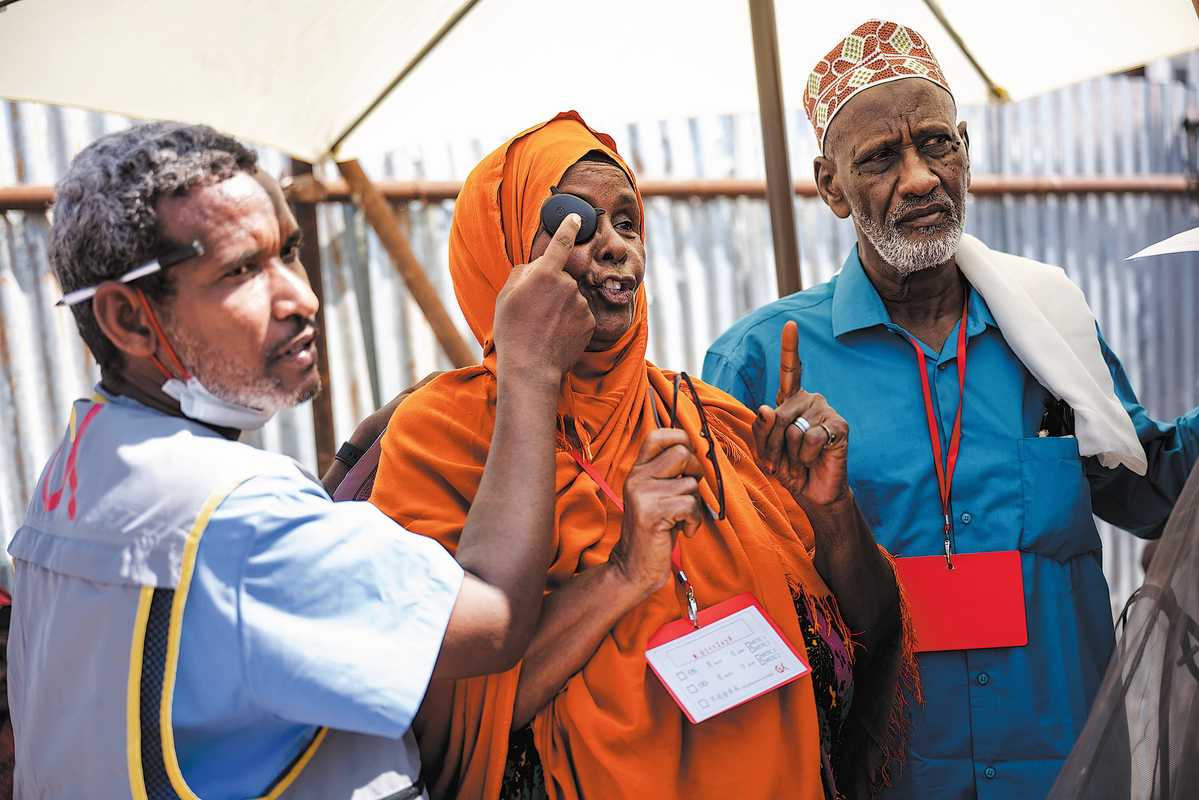
In the fourth week of their stay, a sudden outbreak of acute conjunctivitis followed a period of heavy rainfall. The highly contagious infection quickly spread among outpatients, local staff, and even hotel workers the team was assisting.
Faced with the crisis, Liu's team consulted with colleagues at GX Foundation and made the decision to continue their work rather than suspend surgeries. They swiftly put strict infection control measures in place: infected staff were required to rest, infected patients were not allowed into the hospital, and surgeries for those affected were postponed. As a result, no postoperative patients contracted the infection.
"In a country like Djibouti, where medical resources are extremely limited, cataract surgery does not just restore vision — it transforms lives," Liu said. "This experience deepened our understanding of the vital role ophthalmologists play."
In recent years, China has launched a range of free medical programs across Africa targeting conditions such as cataract, heart disease and cleft lip and palate — bringing recovery to tens of thousands. These initiatives are widely welcomed by local communities and have become a hallmark of China-Africa health cooperation, according to Xinhua News Agency.
"This is a snapshot of China's contribution to global health governance," Liu added, "and a vivid example of our commitment to building a community with a shared future for humanity."
Zhou Huiying and Katherine Kwok contributed to this story.
Contact the writers at houchenchen@chinadaily.com.cn


